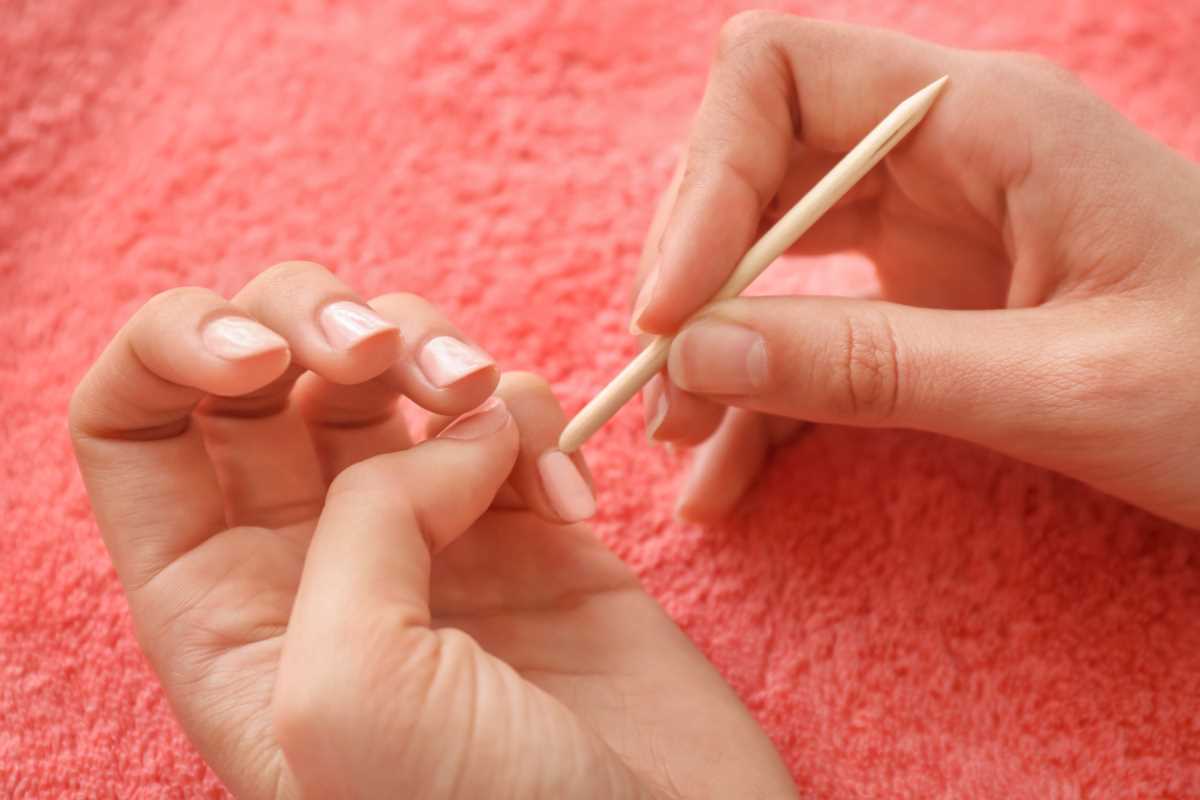Starting a healthier lifestyle doesn't require a complete life overhaul. Research from Stanford University shows that small, consistent changes are 92% more effective for long-term success than dramatic transformations. The secret lies in building one habit at a time, allowing your brain to adapt and integrate new behaviors naturally.
Your journey to better health begins with just seven days. This research-backed plan focuses on sustainable changes that address four crucial wellness pillars: nutrition, fitness, mindfulness, and sleep. Each day introduces a specific focus area, giving you time to practice and adapt without feeling overwhelmed.
You'll discover how to prep nutritious meals, incorporate movement into busy schedules, develop mindfulness practices, and optimize your sleep environment. By the end of this week, you'll have a solid foundation of healthy habits that can transform into lifelong wellness practices. Ready to invest seven days in a healthier you?
The Science Behind Habit Formation
Your brain creates habits through a neurological loop involving a cue, routine, and reward. MIT researchers discovered that this habit loop becomes so automatic that it operates with minimal conscious effort. The key is consistency—repeating behaviors in the same context until your brain recognizes the pattern.
Studies published in the European Journal of Social Psychology reveal that simple habits take an average of 66 days to become automatic. However, the foundation forms much quicker. Within one week of consistent practice, your brain begins strengthening neural pathways associated with new behaviors.
The magic happens when you stack healthy habits together. By focusing on one area each day while maintaining previous practices, you create what researchers call "habit bundling." This approach leverages existing routines to support new behaviors, making lasting change more achievable.
Day 1: Nutrition Foundation - Meal Planning and Prep
Sunday sets the stage for a week of nourishing choices. Research from the American Journal of Preventive Medicine shows that people who meal prep consume more fruits, vegetables, and whole grains while eating fewer fast-food meals throughout the week.
Start your morning by planning three balanced meals and two healthy snacks for each day ahead. Focus on the plate method: fill half your plate with vegetables, one-quarter with lean protein, and one-quarter with complex carbohydrates. Add healthy fats like avocado, nuts, or olive oil to support nutrient absorption and satiety.
Today's Action Steps:
- Create a weekly meal plan featuring whole foods
- Make a detailed grocery list organized by store sections
- Prep vegetables by washing, chopping, and storing them properly
- Cook grains like quinoa or brown rice in bulk for easy meal assembly
- Prepare protein sources like grilled chicken, hard-boiled eggs, or cooked beans
Spend two to three hours on meal preparation. This investment pays dividends throughout the week by reducing decision fatigue and preventing impulsive food choices when hunger strikes.
Evening Reflection: Notice how having healthy options readily available affects your food choices. Rate your energy level and mood compared to previous Sundays when you might have skipped meal prep.
Day 2: Movement Matters - Finding Your Fitness Sweet Spot
Monday focuses on discovering movement patterns that fit your lifestyle and preferences. The American Heart Association recommends 150 minutes of moderate-intensity exercise weekly, but the key is finding activities you genuinely enjoy.
Exercise doesn't require gym memberships or expensive equipment. Research from Harvard Medical School demonstrates that activities like brisk walking, dancing, gardening, or playing with pets provide substantial health benefits when performed consistently.
Today's Action Steps:
- Schedule a 20-minute movement session in your calendar
- Try three different types of physical activity for 5-7 minutes each
- Options include: bodyweight exercises, yoga videos, dancing to music, walking outdoors, or climbing stairs
- Pay attention to which activities feel energizing rather than draining
- Set out workout clothes for tomorrow before bed
The goal isn't intensity—it's consistency. Choose movements that make you feel good during and after completion. Studies show that positive associations with exercise increase long-term adherence by 73%.
Evening Reflection: Journal about which movements felt most natural and enjoyable. Consider how different activities affected your mood and energy levels throughout the day.
Day 3: Hydration and Mindful Eating
Tuesday emphasizes two fundamental habits: proper hydration and mindful eating. Research from the University of Connecticut reveals that even mild dehydration (losing 1.5% of body water) significantly impairs mood, concentration, and energy levels.
Simultaneously, practicing mindful eating helps you recognize hunger and fullness cues while enhancing meal satisfaction. Studies from Harvard University show that mindful eating reduces overeating by 43% and improves digestion.
Today's Action Steps:
- Start your day with 16-20 ounces of water upon waking
- Set hourly reminders to drink water throughout the day
- Aim for half your body weight in ounces of water daily
- Practice the "20-minute rule" for meals: eat slowly and check hunger levels halfway through
- Eliminate distractions during meals—no phones, TV, or computers
- Chew each bite thoroughly and notice flavors, textures, and aromas
Track your water intake using a marked water bottle or smartphone app. Many people discover they've been chronically under-hydrated, which explains afternoon energy crashes and sugar cravings.
Evening Reflection: Compare your energy levels and food cravings to previous days. Notice any changes in skin appearance, mental clarity, or sleep quality related to improved hydration.
Day 4: Stress Management and Mindfulness
Wednesday introduces stress management techniques that support overall health. Chronic stress elevates cortisol levels, disrupting sleep, digestion, immune function, and mental clarity. Research from the American Psychological Association shows that regular mindfulness practice reduces cortisol by up to 27%.
Mindfulness doesn't require lengthy meditation sessions. Even five-minute practices provide measurable benefits for stress reduction and emotional regulation.
Today's Action Steps:
- Practice three minutes of deep breathing upon waking
- Use the 4-7-8 technique: inhale for 4 counts, hold for 7, exhale for 8
- Schedule three "mindful moments" throughout your day
- Try mindful walking during breaks or commutes
- Practice gratitude by writing down three positive experiences before bed
- Experiment with a guided meditation app for 5-10 minutes
Notice stress triggers throughout the day without judgment. Awareness is the first step toward developing healthier responses to challenging situations.
Evening Reflection: Rate your stress levels on a scale of 1-10 at morning, afternoon, and evening. Identify which mindfulness techniques felt most natural and effective for your lifestyle.
Day 5: Sleep Optimization and Evening Routines
Thursday focuses on sleep quality, which affects every aspect of health and wellness. The National Sleep Foundation reports that adults need 7-9 hours of quality sleep nightly for optimal physical and mental function.
Poor sleep disrupts hormones that regulate hunger, stress, and recovery. Research from the University of Chicago shows that sleep deprivation increases cravings for high-calorie foods by 45% while reducing motivation for physical activity.
Today's Action Steps:
- Set a consistent bedtime that allows for 7-9 hours of sleep
- Create an evening routine starting 1-2 hours before bed
- Dim lights and avoid screens 60 minutes before sleep
- Keep your bedroom cool (65-68°F), dark, and quiet
- Try relaxation techniques like gentle stretching, reading, or journaling
- Avoid caffeine after 2 PM and large meals within 3 hours of bedtime
Establish a "sleep sanctuary" by removing work materials, electronic devices, and other stimulating items from your bedroom. Your brain should associate this space exclusively with rest and relaxation.
Evening Reflection: Track your sleep using a journal or smartphone app. Note what time you fell asleep, how many times you woke up, and how rested you felt upon waking.
Day 6: Social Connections and Emotional Wellness
Friday emphasizes social connections and emotional health. Research from Harvard University's Grant Study reveals that strong relationships are the primary predictor of long-term happiness and health. Social isolation increases mortality risk by 50%, equivalent to smoking 15 cigarettes daily.
Emotional wellness involves recognizing feelings without judgment and developing healthy coping strategies. Studies show that people with strong emotional intelligence have better relationships, career success, and physical health.
Today's Action Steps:
- Reach out to someone you care about through a phone call or in-person visit
- Practice active listening during conversations—focus entirely on the other person
- Express genuine appreciation to three people in your life
- Join a community activity, class, or volunteer opportunity
- Practice self-compassion by treating yourself with the same kindness you'd show a good friend
- Identify one emotion you're experiencing and explore it without trying to change it
Social connections don't require large groups or lengthy interactions. Quality matters more than quantity when building supportive relationships.
Evening Reflection: Consider how social interactions affected your mood and energy. Notice any patterns between social connection and overall well-being.
Day 7: Integration and Future Planning
Saturday focuses on integrating the week's practices and planning for sustained success. Research from the University of Pennsylvania shows that people who create specific implementation plans are 91% more likely to achieve their goals.
Review which habits felt most natural and beneficial. Sustainable change happens gradually—trying to maintain too many new behaviors simultaneously often leads to burnout and abandonment.
Today's Action Steps:
- Review your daily reflections from the past six days
- Identify the top three habits that had the most positive impact
- Choose one primary habit to focus on for the next week
- Create environmental cues to support your chosen habit
- Schedule specific times for healthy behaviors in your calendar
- Share your commitment with a supportive friend or family member
- Prepare for potential obstacles and develop contingency plans
Week-Long Reflection:
Rate your overall experience with each wellness area:
- Nutrition and meal planning
- Physical movement and exercise
- Hydration and mindful eating
- Stress management and mindfulness
- Sleep quality and evening routines
- Social connections and emotional wellness
Building Momentum Beyond Week One
The habits you've practiced this week serve as building blocks for lasting wellness. Research from University College London demonstrates that consistency matters more than perfection—missing one day doesn't derail progress if you resume the habit immediately.
Focus on gradual expansion rather than dramatic changes. Once your primary habit becomes automatic (typically 2-3 weeks), add another healthy behavior. This progressive approach prevents overwhelming your willpower while building sustainable lifestyle changes.
Consider these strategies for long-term success:
Track Progress Visually
Use a habit tracker, journal, or smartphone app to monitor consistency. Seeing your progress creates motivation and helps identify patterns that support or hinder your goals.
Create Accountability Systems
Share your journey with friends, family, or online communities. Research shows that people who report progress to others are 95% more likely to achieve their goals.
Celebrate Small Wins
Acknowledge every positive choice, no matter how small. Celebrating progress reinforces the neural pathways associated with
 (Image via
(Image via





